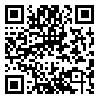BibTeX | RIS | EndNote | Medlars | ProCite | Reference Manager | RefWorks
Send citation to:
URL: http://jdisabilstud.org/article-1-2909-en.html
2- Department of Psychology, Ardabil Branch, Islamic Azad University; Department of Psychology, University of Tabriz
Background & Objectives: According to previous research, several psychological interventions are effective in improving negative emotions and destructive behaviors of students. In this regard, this study aimed to compare the effectiveness of parenting management training and family training in improving the negative emotions and destructive behaviors of students. The review of the literature shows that it is important and necessary to investigate the effectiveness of these pieces of training on other components that have received less attention, because the emotion regulation component is one of the important but neglected psychological behaviors in this field. Therefore, by carrying out this research, besides helping develop the theoretical foundations of this component and determining the effectiveness of parenting management education and school-based family education, we will try to emphasize the need to expand this type of education among schools, create a practical culture and emphasize its implementation.
Methods: The research method was quasi-experimental with a pretest-posttest design with two experimental groups and one control group. The statistical population consisted of all mothers and their female children studying in the third grade of elementary school and having behavioral problems in the academic year 2020-2021 in Tabriz City, Iran. A total of 60 qualified and volunteer students were included in the study as a research sample using the available sampling method and were assigned to two intervention groups of parenting management training and family training and a control group (three groups of 20 people each) by a simple random method. The inclusion criteria were as follows: obtaining a score of more than 250 on the Achievement Emotions Questionnaire (Pekrun et al., 2002) by the students, obtaining a score of more than 60 on the Teacher Observation of Classroom Adaptation Scale-Revised (TOCA-R) (Christine et al., 2009), the age range of 7-11 years for students, mother's level of education (at least guidance school), and consent of the subjects to participate in the research. The exclusion criteria were the absence of parents for more than two sessions in the training sessions, receiving any other type of training by the mothers during the intervention period, and receiving any type of drug and psychotherapy treatment during the intervention period by mothers and students. To collect data, the Academic Emotions Questionnaire (Pekran et al., 2002) and the Teacher Observation of Classroom Adaptation Scale-Revised (TOCA-R) (Christian et al., 2009) were used. The parenting management training program was implemented for nine 1.5-h weekly sessions for one experimental group, and the family education program was implemented for nine 1.5-h weekly sessions for the other experimental group. For the control group, no training was provided in this field. To analyze the data, descriptive statistics indicators (mean and standard deviation) were used. Regarding the inferential statistics section, data analysis was done using analysis of variance, Kruskal-Wallis test, analysis of covariance and Bonferroni's post hoc test in SPSS version 22 software. A significance level of 0.05 was considered for all tests.
Results: The covariance analysis confirmed the effect of parenting management training and family training on improving students' negative emotions (p<0.001) and destructive behaviors (p=0.001). The Bonferroni post hoc test showed that parenting management training was a more effective method in improving negative emotions (p=0.016) and destructive behaviors of students (p=0.047) compared to family training.
Conclusion: Based on the findings of the research, parenting management training has a greater effect on reducing negative emotions and destructive behaviors of students compared to family training.
| Rights and permissions | |
 |
This work is licensed under a Creative Commons Attribution-NonCommercial 4.0 International License. |




